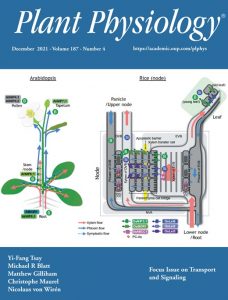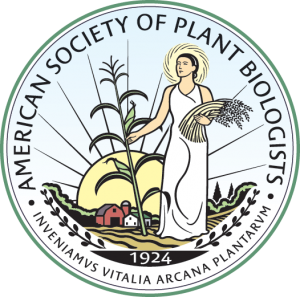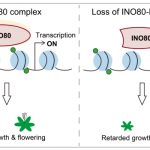Plant Physiology Webinar: Highlighting Focus Issue on Transport and Signaling
 Membrane transport is essential for nutrition and cellular homeostasis, it plays key roles in signaling and development, and it is a vital component of responses to biotic and abiotic stress. The December 2021 Plant Physiology Focus Issue highlights recent advances in our understanding of the molecular mechanisms behind membrane transport, its integration with signaling, and its roles in homeostasis.
Membrane transport is essential for nutrition and cellular homeostasis, it plays key roles in signaling and development, and it is a vital component of responses to biotic and abiotic stress. The December 2021 Plant Physiology Focus Issue highlights recent advances in our understanding of the molecular mechanisms behind membrane transport, its integration with signaling, and its roles in homeostasis.
A special webinarwas held to celebrate the Plant Physiology Focus Issue on Transport and Signaling, organized by the Focus Issue editors: Yi-Fang Tsay, Michael R Blatt, Matthew Gilliham, Christophe Maurel, and Nicolaus von Wirén. It featured talks from four of the authors whose work is included in the issue: Alex Costa, Christophe Maurel, Bo Xu, and Ji-Yun Kim. The Focus Issue topic was introduced by Christophe Maurel and moderated by Stefanie Wege, a Plant Physiology Assistant Features Editor. Recorded December 15, 2021.
SPEAKERS
 Alex Costa. The signatures of organellar calcium
Alex Costa. The signatures of organellar calcium
Alex Costa is a professor of plant physiology at the University of Milan. He received a PhD in plant biotechnology in 2004 from the University of Padova and worked as a postdoctoral fellow at UCSD in the laboratory of Julian Schroeder, a pioneer in the use of genetically encoded indicators to study calcium signaling in guard cells. Alex then focused his attention on the development of new tools for the study of calcium dynamics in plant subcellular compartments. The aim of his research is to identify the molecular mechanisms involved in calcium transport across membranes and to understand their impact on the plant responses to environmental stimuli. As a result of his interest in advanced microscopy, he has also contributed to the development and scientific coordination of the university imaging facility.
 Christophe Maurel. Organ and signal specific control of plant hydraulics: role of aquaporin phosphorylation
Christophe Maurel. Organ and signal specific control of plant hydraulics: role of aquaporin phosphorylation
Christophe Maurel is research director at CNRS and director of the Biochemistry and Plant Molecular Physiology Department, Montpellier, France. He has a long-standing interest in plant water transport. His group uses molecular and physiological approaches to investigate the modes of water transport regulation at the level of cloned aquaporins, purified membranes, living cells, and organs like excised roots. In addition, his lab combines quantitative genetics, root phenotyping and mathematical modeling to address the dynamics of growth and hydraulics in roots, showing how these adapt to environmental constraints.
 Bo Xu. The emerging role of GABA as a transport regulator and physiological signal
Bo Xu. The emerging role of GABA as a transport regulator and physiological signal
Bo Xu is a postdoctoral researcher in Matthew Gilliham’s Lab at the University of Adelaide. He focuses on ion transport and signaling in plant stress physiology and aims to address fundamental questions in plant biology to provide knowledge that will help improve crop productivity and global food security in a changing climate. His work has established the importance of cell-specific solute transport, γ-aminobutyric acid (GABA), and calcium signaling in plant salt tolerance, drought tolerance, and symplastic connectivity, leading to improved disease resistance.
 Ji-Yun Kim: Understanding nutrient transport mechanism in plants through single-cell transcriptomics
Ji-Yun Kim: Understanding nutrient transport mechanism in plants through single-cell transcriptomics
Ji-Yun Kim received her PhD in chromatin biology in 2016 at Seoul National University, South Korea, under the supervision of Yoo-Sun Noh. In 2018, she moved to Germany and joined the Institute of Molecular Physiology at Heinrich Heine Universität Düsseldorf, led by Wolf Frommer. Since then, she has been part of the NSF-funded SECRET-ome project and aims to identify components determining different secretory cell types in plants.
 Moderated by Stefanie Wege
Moderated by Stefanie Wege
Stefanie Wege is a mid-career researcher interested in ion flux dynamics and endomembrane ion transport proteins. After her PhD in France and a postdoc as a Marie-Curie fellow in Switzerland, she moved to Adelaide, Australia, to work with Matthew Gilliham, where she obtained her own funding, an ARC DECRA (Australian Research Council Discovery Early Career Researcher Award). Throughout her career Stefanie has focused on endomembrane ion transport, and results from her research include insights into nitrate and chloride management, phosphate transport and signaling, salinity tolerance, and recently the identification of the ion transporter CCC1 as an important component regulating ions and pH in the trans-Golgi network/early endosome (TGN/EE). Stefanie was an Assistant Features Editor for Plant Physiology in 2020 and is delighted to resume her role in 2022, after a turbulent 2021.
This webinar and its recording are freely available thanks to the support of the American Society of Plant Biologists. Join today.




